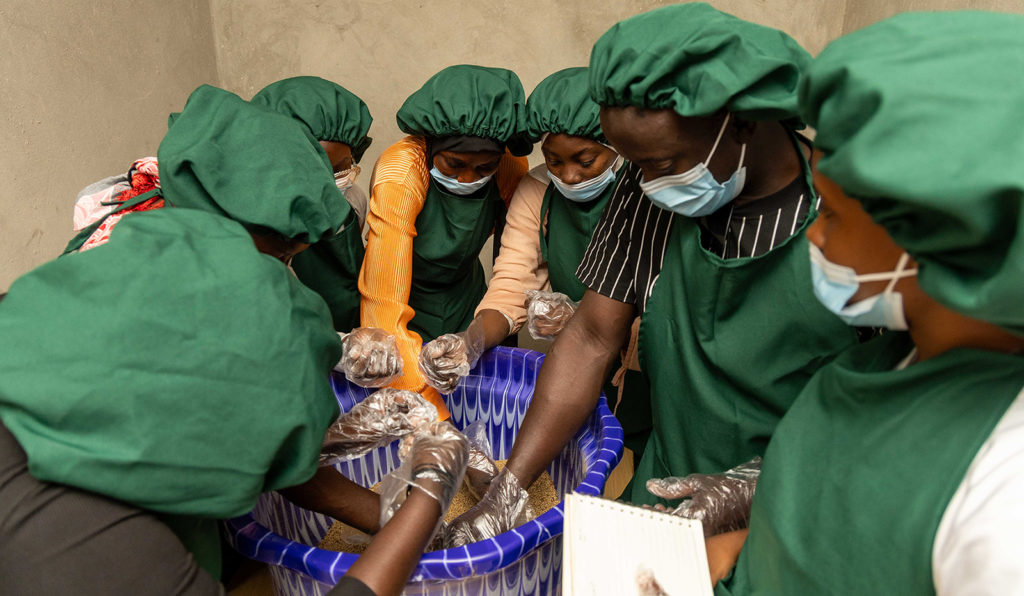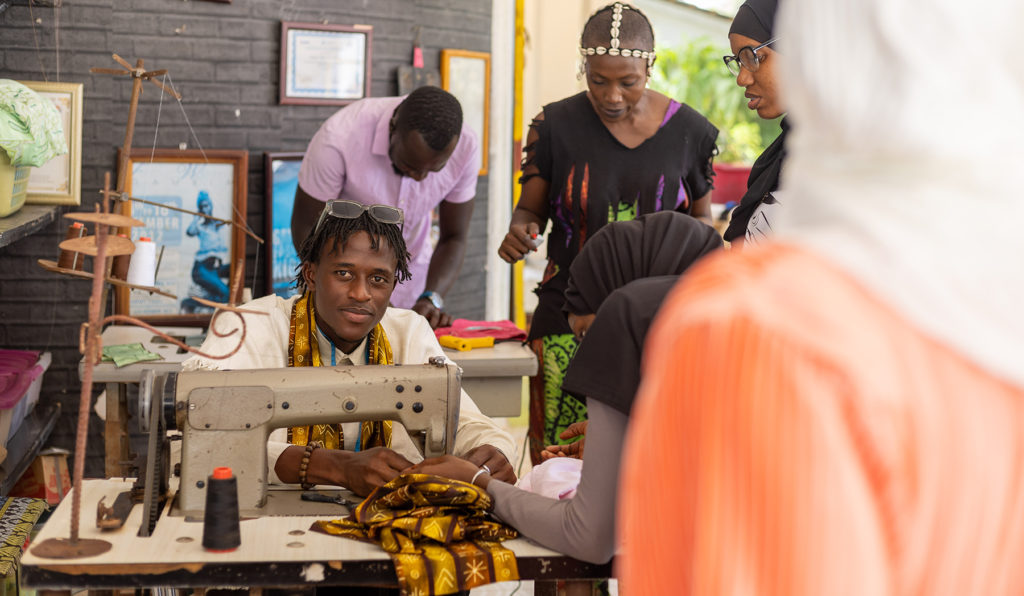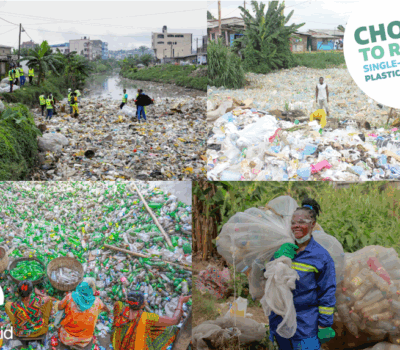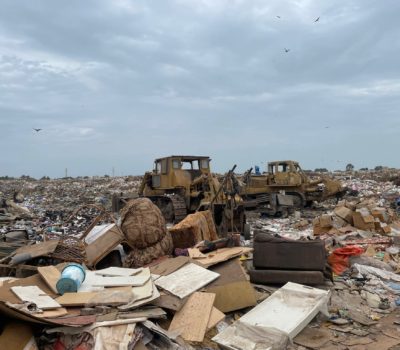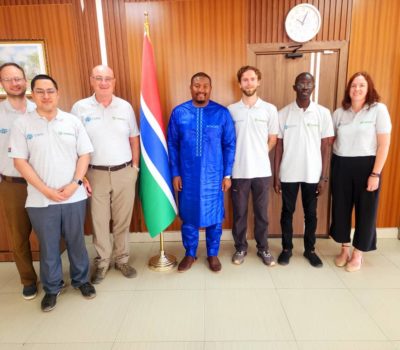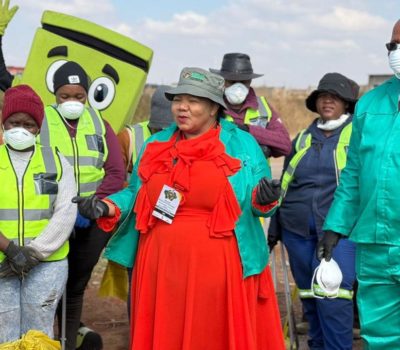Empowering Gambian Waste Innovators Through Bespoke Training
News
Author: Lottie Seymour-Williams
Published: 7 May 2025
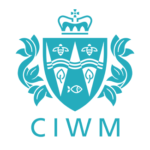 At WasteAid, we believe that hands-on training can help build a thriving circular economy. Through the Dennakuwo Circular Economy Network (CEN) and in collaboration with the Chartered Institution of Wastes Management (CIWM), we are empowering entrepreneurs and small businesses to turn waste into opportunity.
At WasteAid, we believe that hands-on training can help build a thriving circular economy. Through the Dennakuwo Circular Economy Network (CEN) and in collaboration with the Chartered Institution of Wastes Management (CIWM), we are empowering entrepreneurs and small businesses to turn waste into opportunity.
Our commitment to skills development and knowledge-sharing was recently showcased in two dynamic training sessions—one focused on Agribusiness & Food Processing and the other on Sustainable Fashion & Creativity. These hands-on training events, led by experienced members of the Dennakuwo Network, have provided participants with the practical skills necessary to reduce waste, create sustainable products, and grow their businesses. In the Annual Members’ Survey 86% of members reported that they had attended at least one training event, with 50% attending 2 or more, demonstrating the value of training as part of the network’s offers.
Agribusiness & Food Processing: Transforming Local Ingredients into Opportunity
In The Gambia, agriculture and food production are vital, yet many local businesses struggle with food waste. To address these challenges, Nature’s Gift, a respected, female-led business, delivered a training session tailored to food entrepreneurs. During this session, 28 business owners, food processors, and aspiring entrepreneurs came together to learn through practical demonstrations that ranged from herbal tea preparation to wheat-based recipes.
Participants explored sustainable techniques aimed at extending the shelf life of local ingredients, reducing spoilage, and unlocking new value chains. They discovered how smart processing methods—such as improved drying and packaging—could not only curb waste but also enhance profitability. As one participant remarked, “This training opened my eyes to new ways of using local ingredients efficiently while reducing waste. I’m now inspired to expand my product line and introduce innovative packaging solutions.” Such feedback underscores the transformative impact of equipping local businesses with the right technical knowledge.
Sustainable Fashion & Creativity: Upcycling for a Greener Future
The small but growing fashion industry in The Gambia, like elsewhere, faces the twin challenges of waste and resource inefficiency. By supporting home-grown fashion in The Gambia, WasteAid are helping to end the reliance on imported textiles and secondhand clothes that often end up in landfill.
Yaws Creation, a leading local fashion house, ran a Sustainable Fashion & Creativity Workshop. Over 20 local tailors, designers, and artisans participated in sessions that went beyond traditional lectures. Instead, they engaged in practical upcycling activities, learning to convert fabric scraps and second-hand clothing into stylish apparel and home décor.
Industry experts brought circular economy principles into the creative process, showing how discarded materials could be reborn as unique, market-ready products. Lawal Ronke from Button Up Creations summed up the experience: “This is something completely different and highly welcomed because it involves practical sessions and demonstrations. As someone in the fashion industry, it’s great to attend such an educational and inspiring session.” The workshop not only nurtured innovative design techniques but also highlighted the economic potential of sustainable fashion.
Why These Trainings Matter: Empowering a Circular Future
Both training sessions embody our core belief that sustainability and economic growth can go hand in hand. By providing practical, hands-on experiences, we have enabled entrepreneurs to immediately apply new skills in their businesses. The trainings are a clear demonstration of how circular economy practices can reduce waste while building a foundation for long-term economic resilience. They serve as a catalyst for innovation, empowering participants to see waste as a resource and to implement solutions that are both environmentally and financially sustainable.
Looking Ahead: More Training, More Impact
The momentum behind the Dennakuwo Circular Economy Network is growing, and we invite partners to help us expand its impact. Your support can help build a future where waste is no longer a problem—but a valuable resource.

